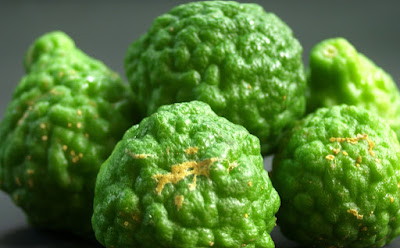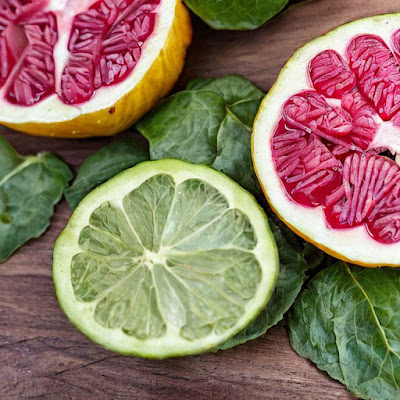1) It is most commonly used to flavor Earl Grey tea, which is a type of black tea that is flavored with bergamot oil.
2) The fruit itself is not typically eaten raw due to its sour taste, but it is commonly used to make marmalade, preserves, and liqueur.
3) In addition to its use in food and beverages, bergamot is also used in various other applications due to its pleasant scent and potential health benefits.
Bergamot oil is often used in aromatherapy and is believed to have antidepressant, antispasmodic, and sedative properties. It is also believed to help reduce stress and promote relaxation.
4) Said to relieve stress, anxiety, and depression, and contribute to a calm sleep.
5) Bergamot oil is also commonly used in perfumes and colognes, as well as in products such as soap and candles. The oil is extracted from the peel of the bergamot fruit using a process called cold pressing.
6) Bergamot has also been used traditionally in folk medicine to treat a variety of ailments. It has been used to help alleviate respiratory problems, such as bronchitis and asthma, and to help reduce fever. It has also been used to treat digestive problems, such as indigestion and bloating.
7) Some people also use bergamot oil topically to help treat skin conditions, such as acne and eczema. It is used in Europe to treat infections of the skin, respiratory tract, and urinary tract.
8) There is some scientific evidence to support the use of bergamot for some of these purposes. For example, a study published in the Journal of Ethnopharmacology found that bergamot oil was effective at reducing anxiety and depression. Another study published in the Journal of Clinical
Psychopharmacology found that bergamot oil was effective at reducing anxiety and improving mood in humans.
9) Bergamot oil is also believed to have antibacterial and antiviral properties. It has been used to help treat infections and boost the immune system. A study published in the Journal of Agricultural and Food Chemistry found that bergamot oil was effective at killing a variety of bacteria, including E. coli and Staphylococcus aureus.
10) Another study published in the Journal of Ethnopharmacology found that bergamot oil was effective at inhibiting the growth of the herpes simplex virus.
RELATED POST: What are the 20 Immunity-Boosting Foods for Adults and Children?
What are the side effects of bergamot?
Bergamot is generally considered to be safe when consumed in small amounts, such as when it is used to flavor Earl Grey tea. However, there are some potential side effects that you should be aware of.
1) One potential side effect of bergamot is photosensitivity. Bergamot oil contains a chemical called bergapten, which can make the skin more sensitive to the sun. If you use bergamot oil topically or consume large amounts of bergamot, you may be more likely to develop sunburn or other skin irritation when exposed to sunlight. It is recommended to avoid exposing your skin to the sun after using bergamot oil or products containing bergamot oil, or to use protective clothing and sunscreen.
2) Bergamot oil may also cause allergic reactions in some people. Some people may develop an allergic reaction to bergamot oil due to the presence of certain compounds in the oil, such as limonene and linalyl acetate.
Symptoms of an allergic reaction to bergamot oil may include redness, itching, swelling, and difficulty breathing. If you experience any of these symptoms after using bergamot oil or products containing bergamot oil, you should stop using the product and seek medical attention if necessary.
3) In rare cases, bergamot oil may also cause toxicity. Bergamot oil contains a chemical called furanocoumarin, which can be toxic if ingested in large amounts. Symptoms of bergamot oil toxicity may include nausea, vomiting, diarrhea, and tremors. If you consume large amounts of bergamot oil, you should seek medical attention immediately.
4) It is important to note that bergamot oil should not be used by pregnant or breastfeeding women, as there is not enough information available about its safety in these populations. In addition, bergamot oil should not be used on broken or damaged skin.
Bergamot is generally considered to be safe when consumed in small amounts. It is important to use caution when using bergamot oil or products containing bergamot oil, and to seek medical attention if necessary.
RELATED POST: 3 Yummy Ways to Prepare Beetroot Juice Fast and Easy
What does bergamot smell like?
Bergamot has a citrusy, sweet, and slightly floral scent. It is often described as having a bright and refreshing aroma that is reminiscent of a combination of lemon and orange.
The scent of bergamot is often used in perfumes, colognes, and other fragranced products due to its pleasant and uplifting aroma. Bergamot oil is also commonly used in aromatherapy due to its calming and stress-relieving effects.
REFERENCES:
Ann Sullivan. 2016. The Brilliance of Bergamot Essential Oil: Benefits, properties, applications, studies & recipes. CDI Publications. LLC ASIN:B01LZVXK7T
Board, Niir. 2011. Oil of Bergamot, The Complete Technology Book of Essential Oils (Aromatic Chemicals). SBN 978-81-7833-066-2
David W. Group.2018. Encyclopedia of Mind Enhancing Foods, Drugs and Nutritional Substances. McFarland. ASIN : B00TKUJ8T0
Girard J, Unkovic J, Delahayes J, Lafille C. 1979. Phototoxicity of Bergamot oil. Comparison between humans and guinea pigs. Dermatologica (in French). 158 (4): 229–43. doi:10.1159/000250763. PMID 428611.
Mannucci, C.; Navarra, M.; Calapai, F.; Squeri, R.; Gangemi, S.; Calapai, G. 2017. Clinical pharmacology of Citrus bergamia: A systematic review. Phytotherapy Research. 31 (1): 27–39. doi:10.1002/ptr.5734. PMID 27747942. S2CID 12136775
Navarra M, Mannucci C, Delbò M, Calapai G. 2015. Citrus bergamia essential oil: from basic research to clinical application. Frontiers in Pharmacology. 6: 36. doi:10.3389/fphar.2015.00036. PMC 4345801. PMID 25784877



No comments:
Post a Comment